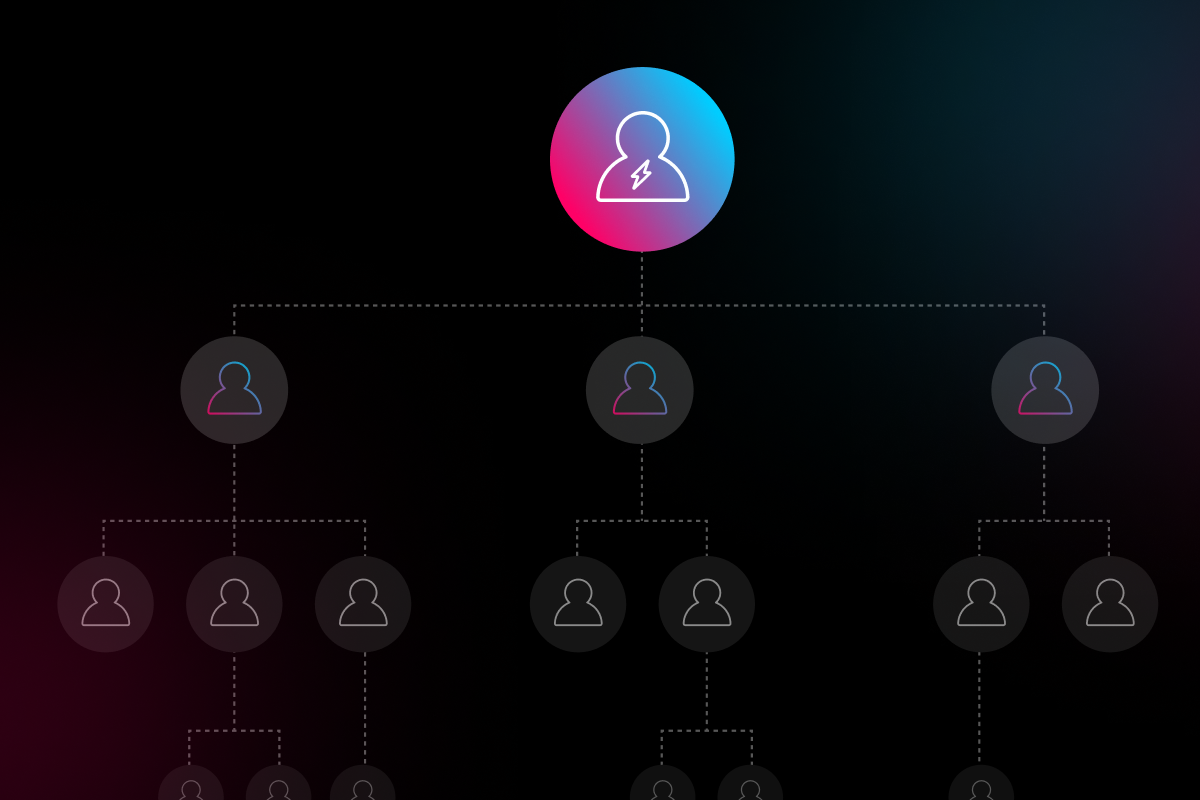
A career in IT offers endless potential for learning, progression, and professional development. As technology evolves and companies invest in digital transformation, IT workers can find themselves at the center of business innovation. However, the day-to-day work involved in running an IT department is not without its setbacks, and the demand for basic troubleshooting can quickly get in the way of the more strategic projects.
This is where a managed IT solution can help. By outsourcing everyday IT management to an external service provider, you can offload the tedious aspects of your role and get back to what you do best. Keep reading to learn more about how you can leverage managed IT to free up your time and advance your IT career.

Why GenUI Chose Electric to Power Their IT
Learn how the Operations Manager at GenUI is using Electric to help with Device Management, IT Support and more.
Read the Case StudyRoles within IT Career Paths
IT career progression doesn’t always have a clear pathway, often because there are so many different directions that IT professionals can take after attaining their initial qualification. IT career paths aren’t necessarily linear, and lateral moves between specialist areas are common. Some of most popular and in-demand roles that IT professionals may experience along their career path include:
Software Developer
Software developers design and build applications, websites, and other tools that are central to the running of a company. Core skills include the ability to create code that’s easily understood by others, and a willingness to learn new technologies to keep up with the latest trends. These types of developers usually work in teams to create new software for a company’s products or services, and they also work closely with designers and other IT professionals who help them create the user interface for their programs.
Systems Analyst
Systems analysts typically work with other IT professionals on developing, implementing, and maintaining computer networks, databases, and application software. They also help with cybersecurity issues related to their organization’s computer systems. A systems analyst’s job requires strong problem-solving skills, analytical ability, and familiarity with various application software packages used in today’s businesses.
Database Administrator
A database administrator is responsible for the database infrastructure in a company’s network. They’re also responsible for ensuring that all data on the network is secure and that it can only be accessed by authorized users. The database administrator role requires an understanding of how databases work and an ability to interpret and solve problems using software tools such as SQL and MySQL.
Networking
IT careers in networking typically involve working as a technician or systems administrator on a network. Additionally, it can include working as an engineer to design and implement new systems built to support existing networks.
Obstacles in the IT Career Pathway
Whichever role you choose to specialize in, the IT sector is filled with opportunities for advancement. However, IT career pathways also have their fair share of obstacles. Day-to-day work can easily take up the majority of your time, which in turn can prevent you from progressing in other areas. If this sounds familiar, you may find your IT career progression is being slowed down by external factors such as:
Lack of automation
One of the main obstacles to IT career advancement is a lack of automation and inefficient processes within your company. This can lead to excessive time spent on repetitive tasks, and not enough time to focus on more strategic projects to help move your career forward. Working with a managed IT provider can help you overcome this obstacle by streamlining and automating tedious work.
Insufficient resources
Small businesses typically have limited resources when it comes to hiring and team building. Unfortunately, the IT department is usually the first to suffer the fallout of this challenge, with just one or two people being tasked with the entire company’s IT needs. As a result, the IT professionals involved can spend their days putting out fires rather than investing in company-wide improvements to IT infrastructure.
Lack of specialist knowledge
Without a properly staffed team, there may also be a lack of specialist knowledge within a company to address specific IT challenges. Time is lost to researching problems and fixes that could otherwise be resolved quickly if the appropriate IT professionals were added to the team. Counterintuitively, these quick fixes can also get in the way of more structured learning and development, as burned out IT workers struggle to find the time to study their areas of interest.
Miscommunication
Unclear communication between team members or departments can lead to frustration on both ends and can ultimately result in various IT projects being delayed or not completed correctly. Furthermore, it will be difficult to build the trust and credibility that is vital to career progression if you are working toward confusing or irrelevant targets and goals, especially if your management team struggles to understand the intricacies of IT.
3 Ways Managed IT Solutions Benefit Your IT Career Roadmap
It can be difficult for IT professionals to progress in their careers when they are overwhelmed by day-to-day tasks and admin. This is where managed IT solutions come in. By outsourcing these time-consuming responsibilities, you can focus on strategic initiatives that will help you advance your career. Here are three ways managed IT can help you map out a successful IT career.
1. Time savings
By taking care of routine patches, upgrades, and rollouts, as well as tasks like device provisioning, user access management, and general IT support, a managed IT solution allows you to spend more time focusing on projects that move the needle for your company.
2. Access to specialized knowledge
As an IT professional, you need to consistently acquire new skills and knowledge of emerging technologies. If you are working with a small in-house team, this might not be possible. But, by working alongside an external team of experts, you will gain access to a wider knowledge base and benefit from quick answers to any IT-related questions.
3. Support for special projects
To move up in your career, you’ll likely need to take on special projects outside your normal work scope. Working with managed IT services on complex projects like migrations to the cloud can help broaden your skills and add to your resume. In addition, working on special projects can make you more valuable to your company.

Learn more about how Electric can help you manage IT
Each month, our Innovation Series webinar demonstrates how Electric can help you manage your mobile device management solution, employee onboarding and offboarding, and other IT issues that are costing you time and productivity.
Sign up for the next Innovation Webinar here!Get the Support You Need to Advance Your IT Career
As a busy IT professional, it can be difficult to find the time for learning and development. Everyday challenges can make career progression seem like an impossible goal. However, by leveraging managed IT services, you can get the help you need to execute crucial IT tasks, and free up your time to focus on other projects. Get in touch with Electric today to learn how we make IT simple, secure, and lightning fast.



